The Chess
Kings and
Queens of
Oshodi ♛♜
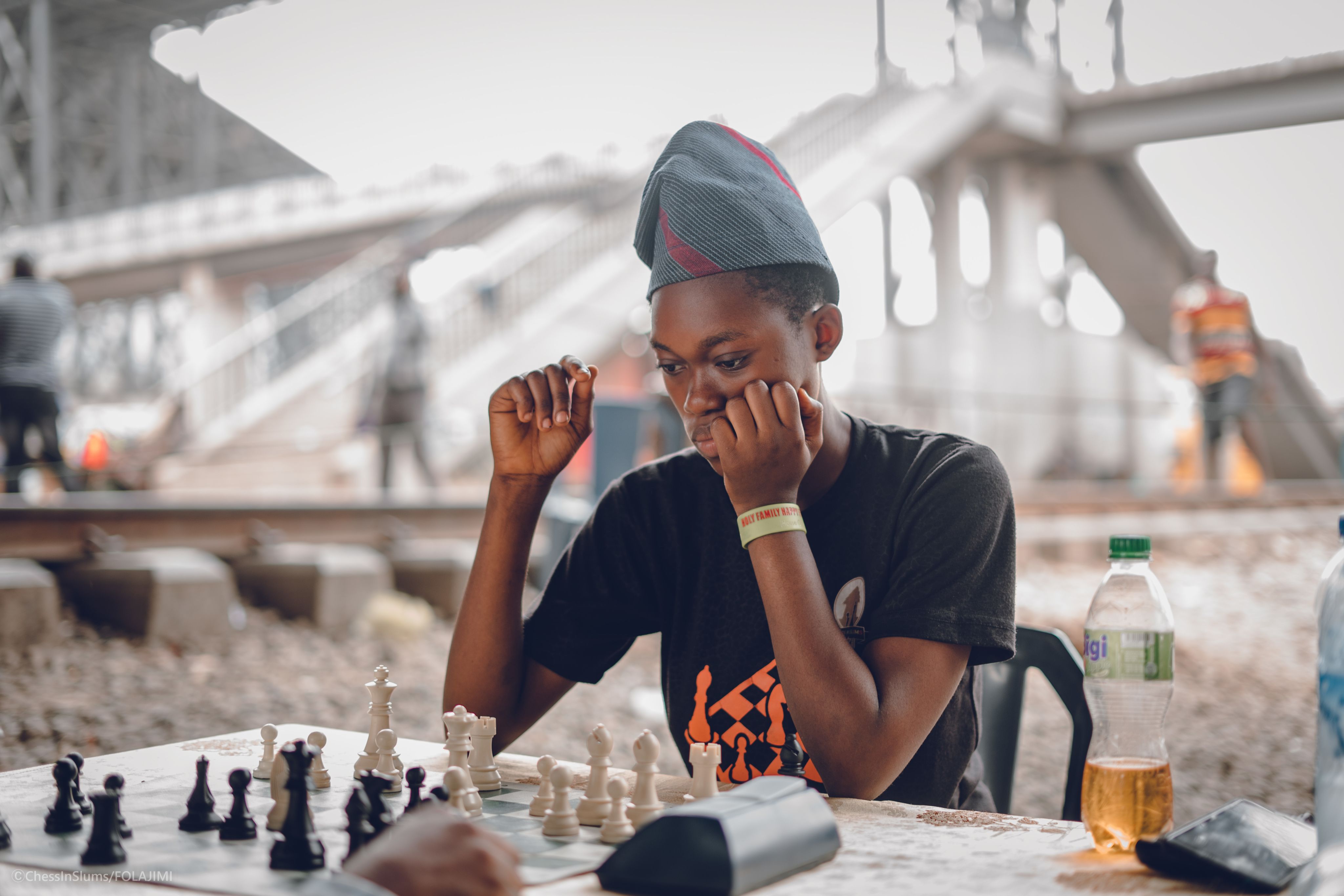
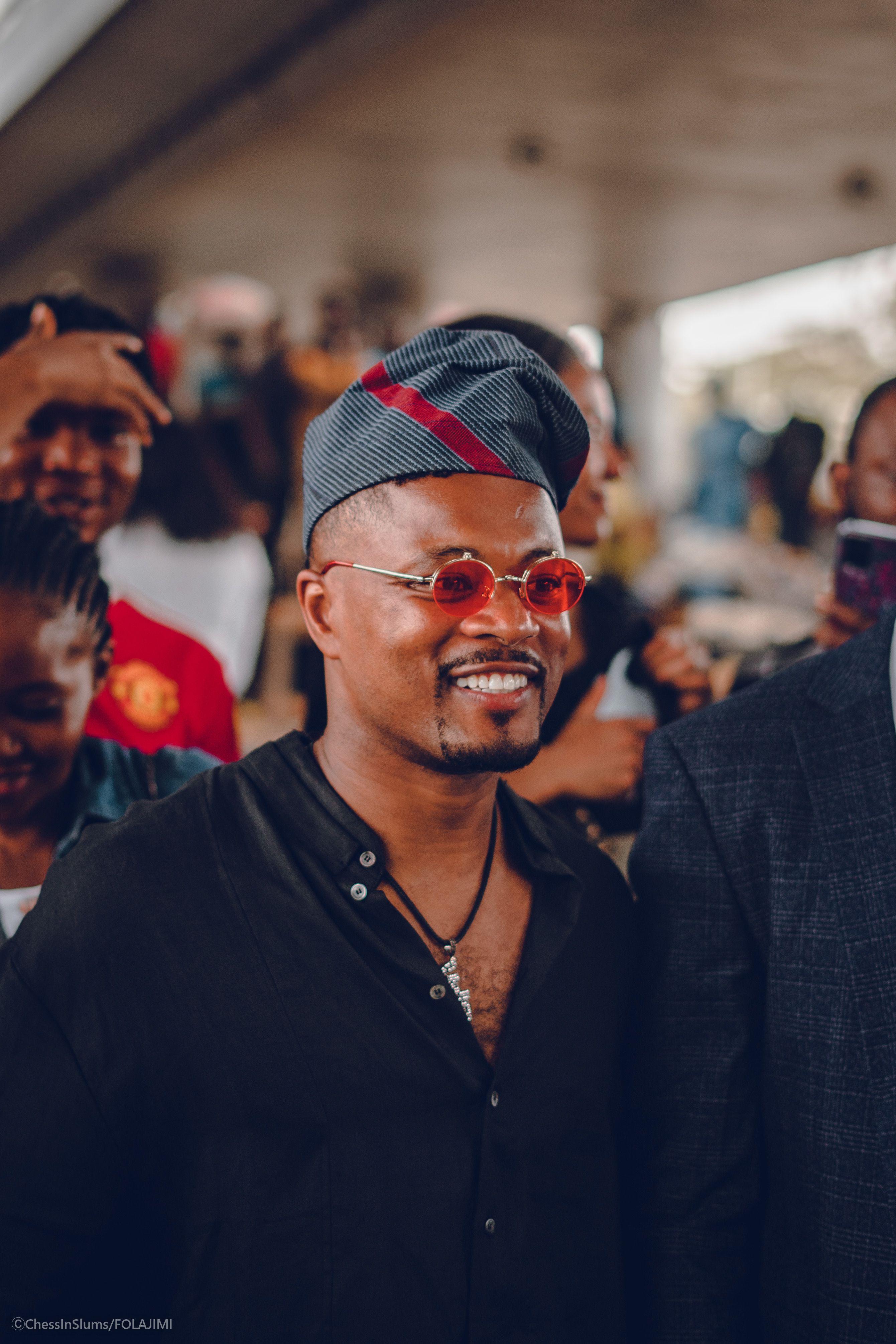
♔
Patrice Evra
On March 26, 2022, former Manchester United and France national team captain Patrice Evra was spotted strolling with an entourage in Oshodi, Lagos, Nigeria.

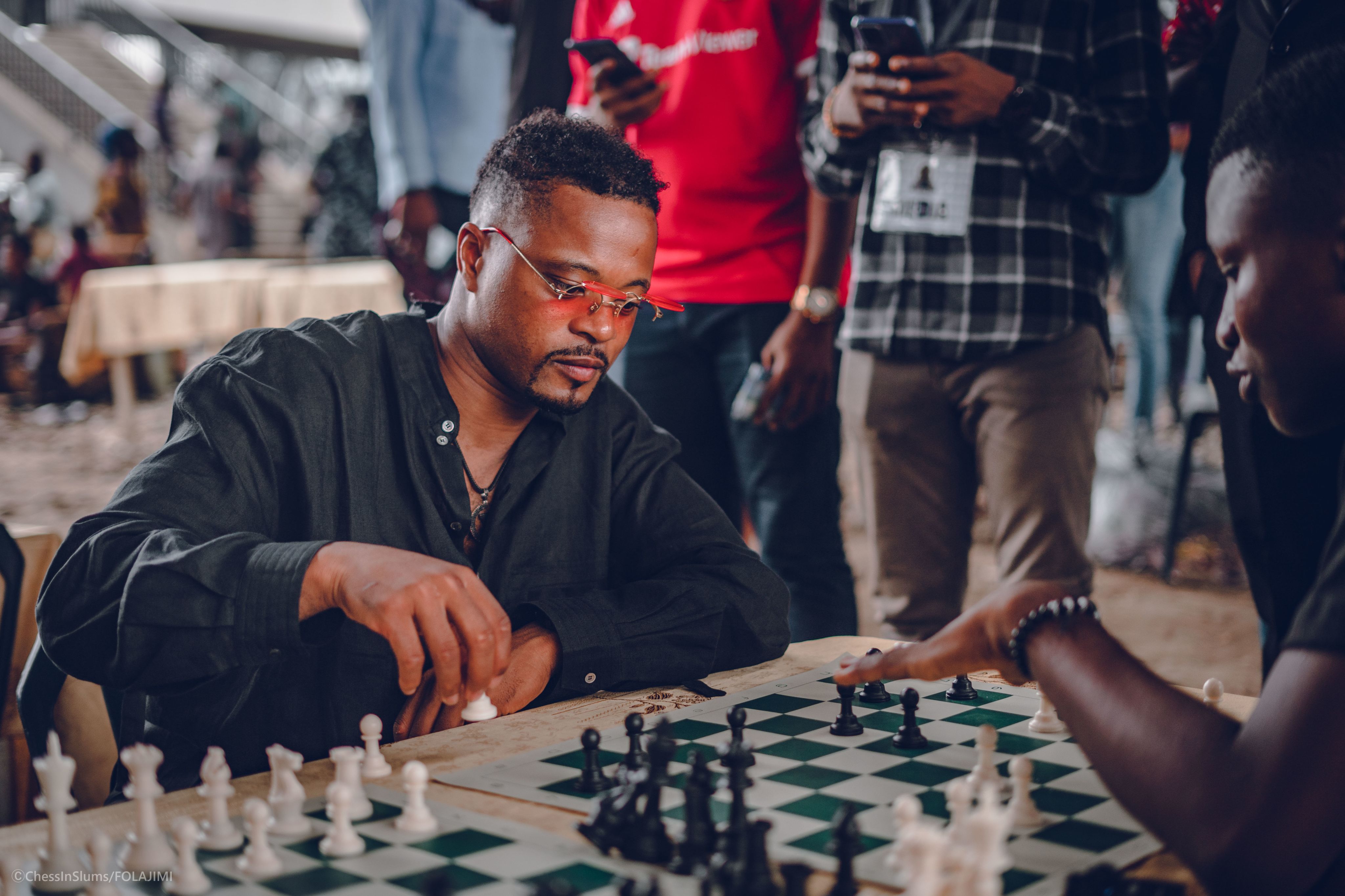
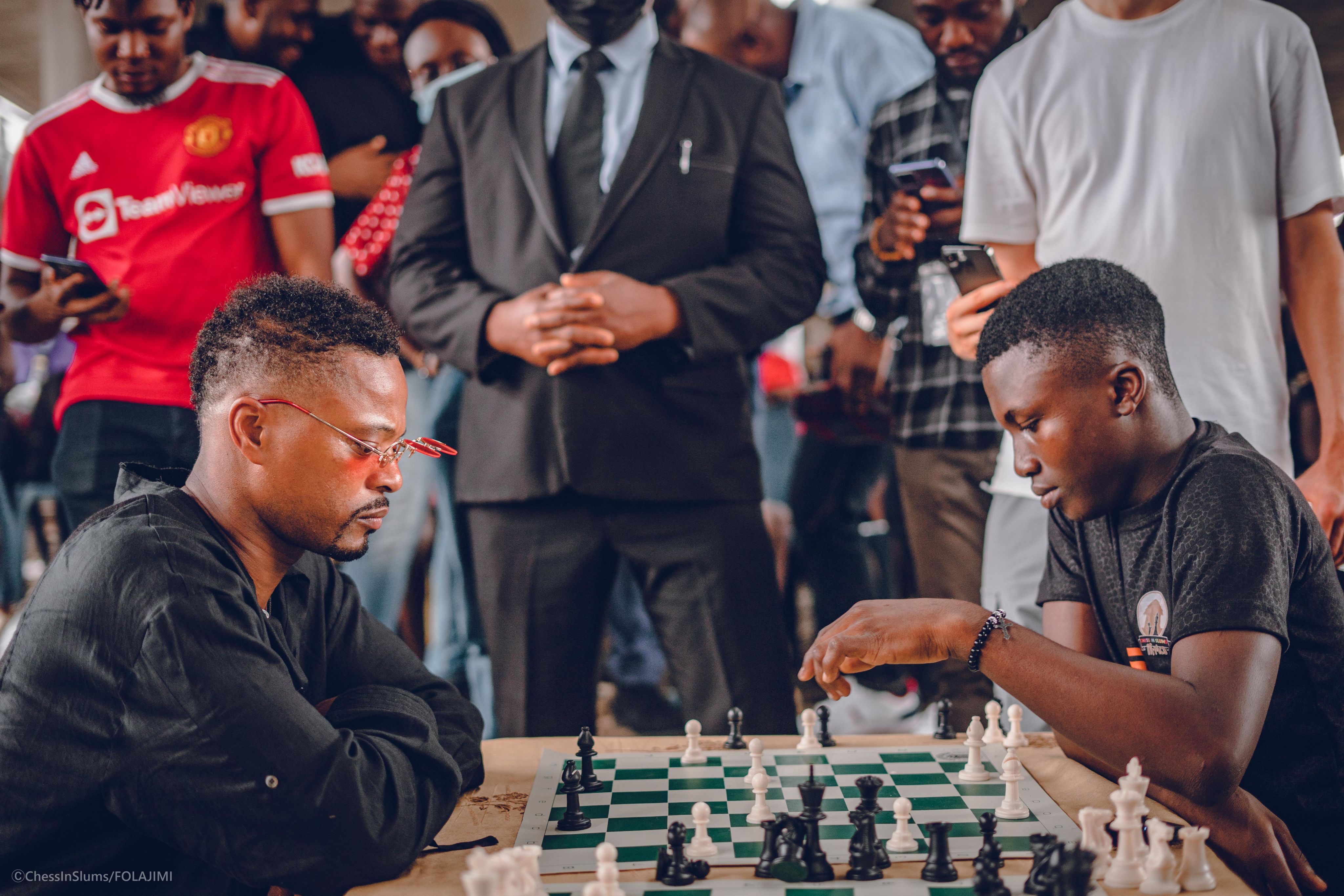
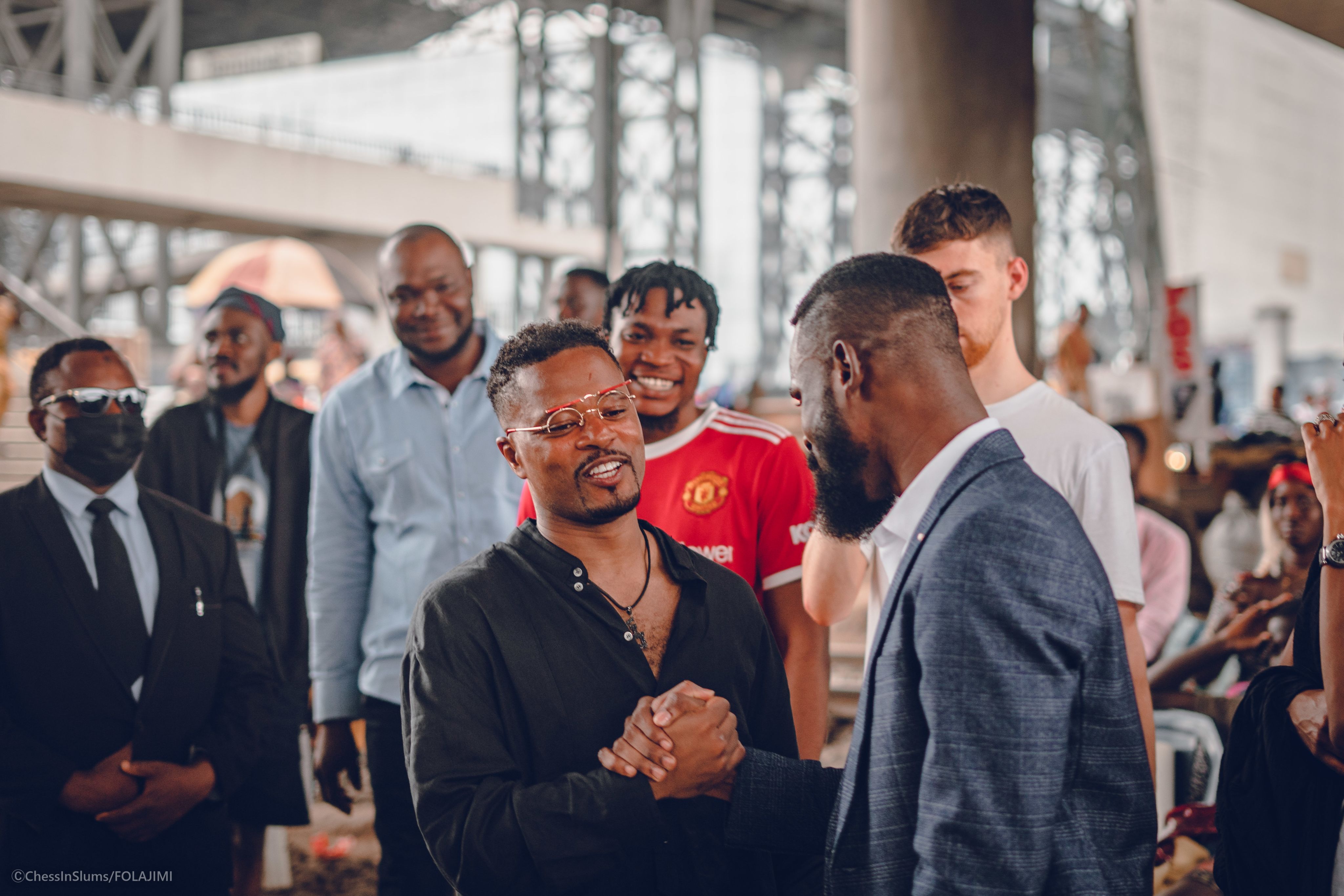
Evra stopped by a pop-up chess event at the underpass of a highway. He was not there to watch but to play!
His opponent was Jamiu Ninalowo, a teenage ace player.
An orphan and former school dropout, Jamiu had known great hardships until he was discovered by a local chess education program.
For Jamiu and many other disadvantaged kids, chess is more than a game, it is a lifeline.
For Chess In Slums Africa, the people behind the lifeline, Evra's visit was a crowning moment.
Chess Master ♔
Chess in Slums is the brainchild of Babatunde Onakoya, a Nigerian chess master and coach who discovered the board at age 10.
Babatunde’s experience in Majidun, a community in the city of Ikorodu, northeast of Lagos across the Lagos lagoon where he partially grew up, provided the inspiration for the initiative.
In 2018, as he followed one of his friends there, he met street thugs commonly called agberos or “area boys” who were smoking while kids—many out of school—were running around.
Babatunde realized that the kids were trapped in the same cycle as the adults and thought chess could be a way to break that cycle. “When I had the idea to take chess to slums, I just told all my friends about it and they came with me and supported,” said Babatunde. “A lot of them didn’t play at the time. I taught them how to play and it just became our journey every weekend.”
The program kicked off in Majidun.

In July 2021, Babatunde’s car ran out of fuel on the Oshodi bridge, a major transportation interchange in Lagos.

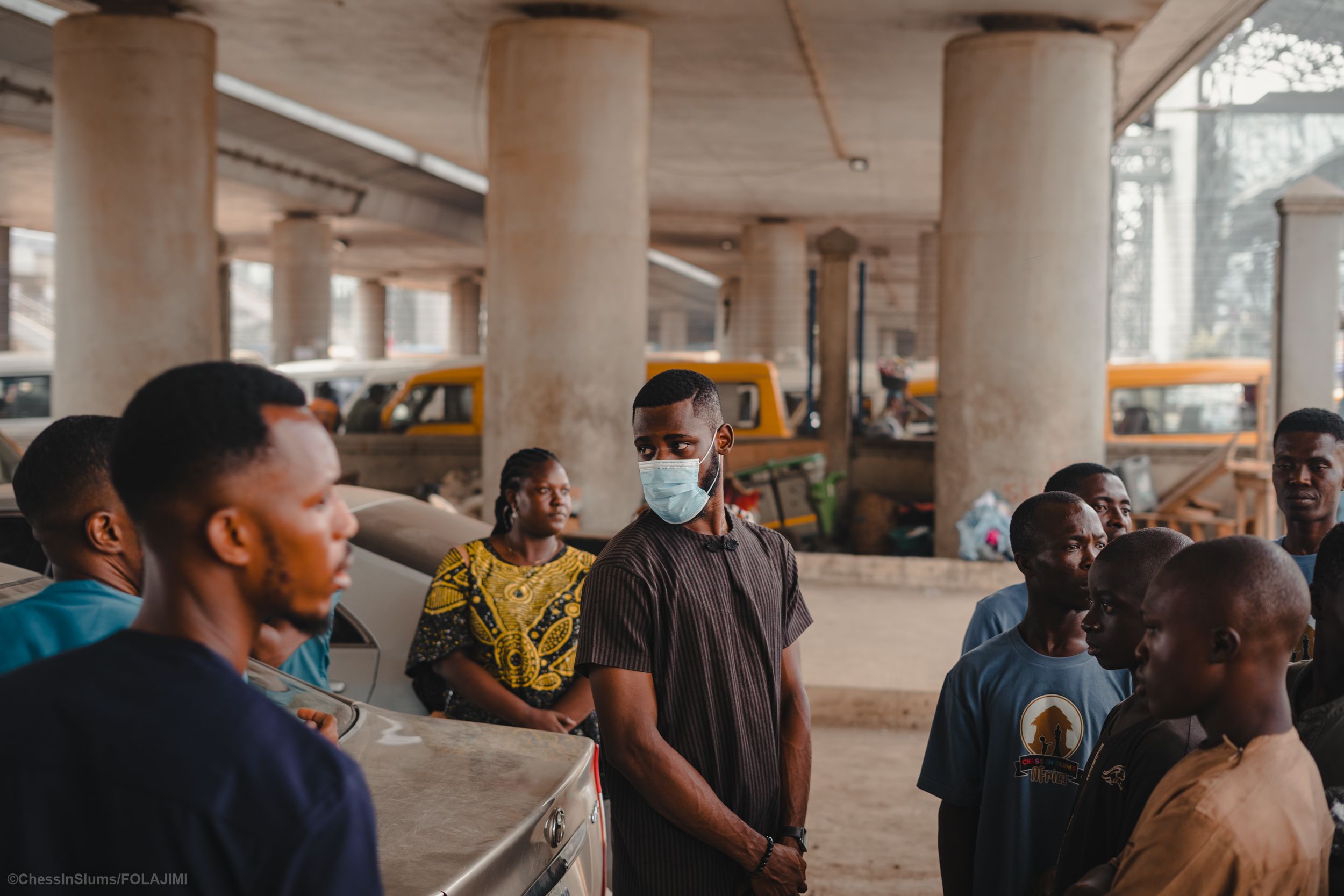
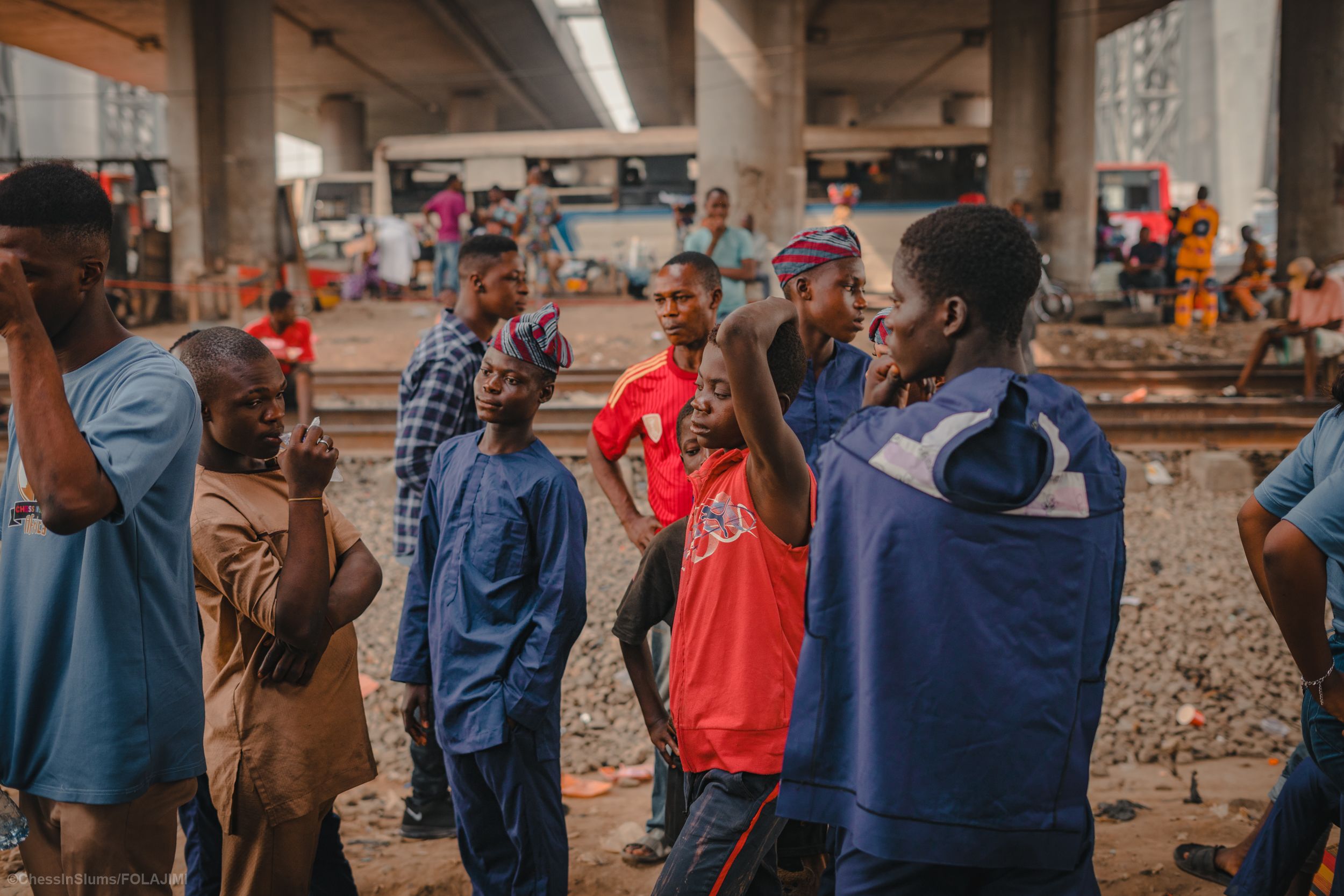
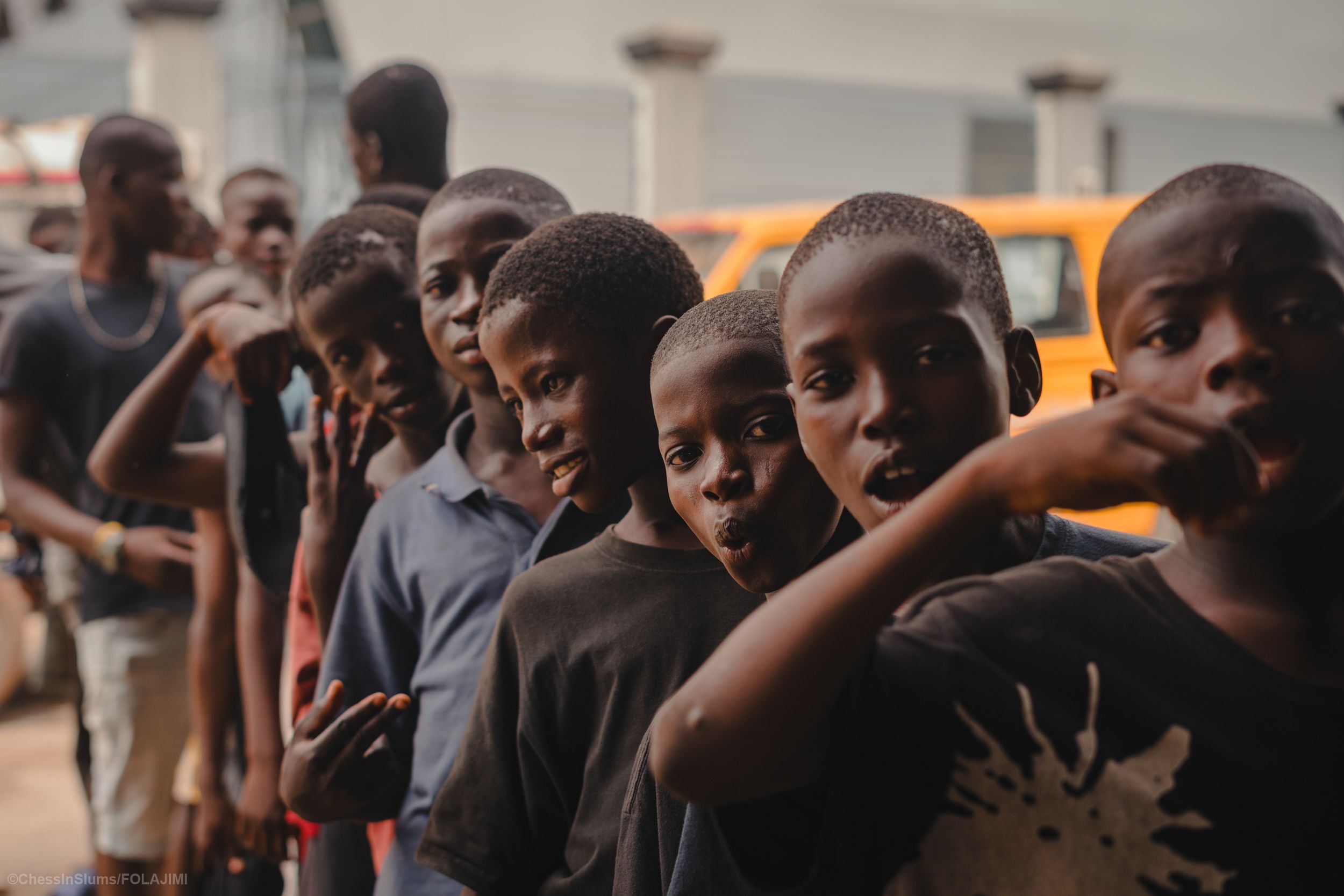
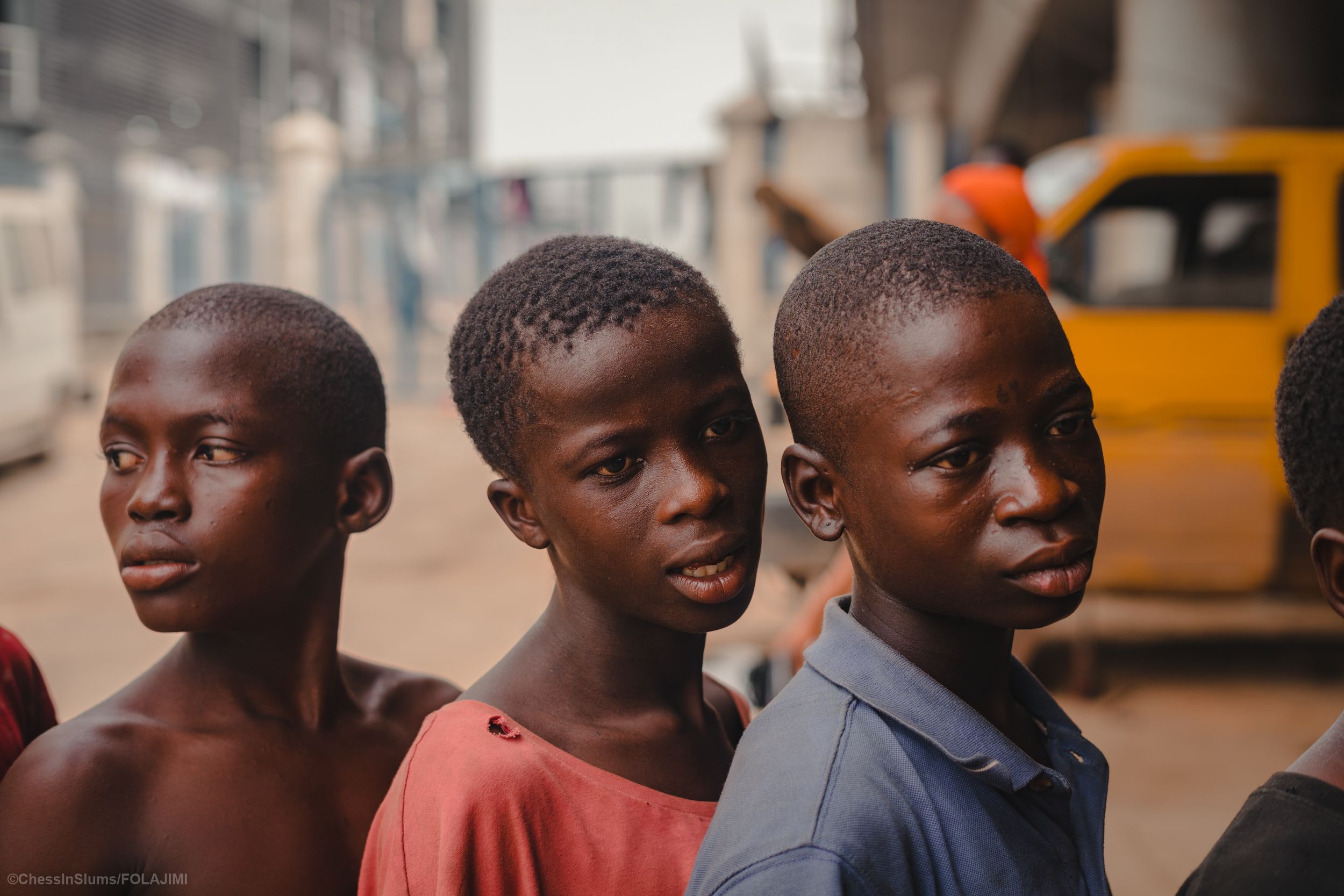
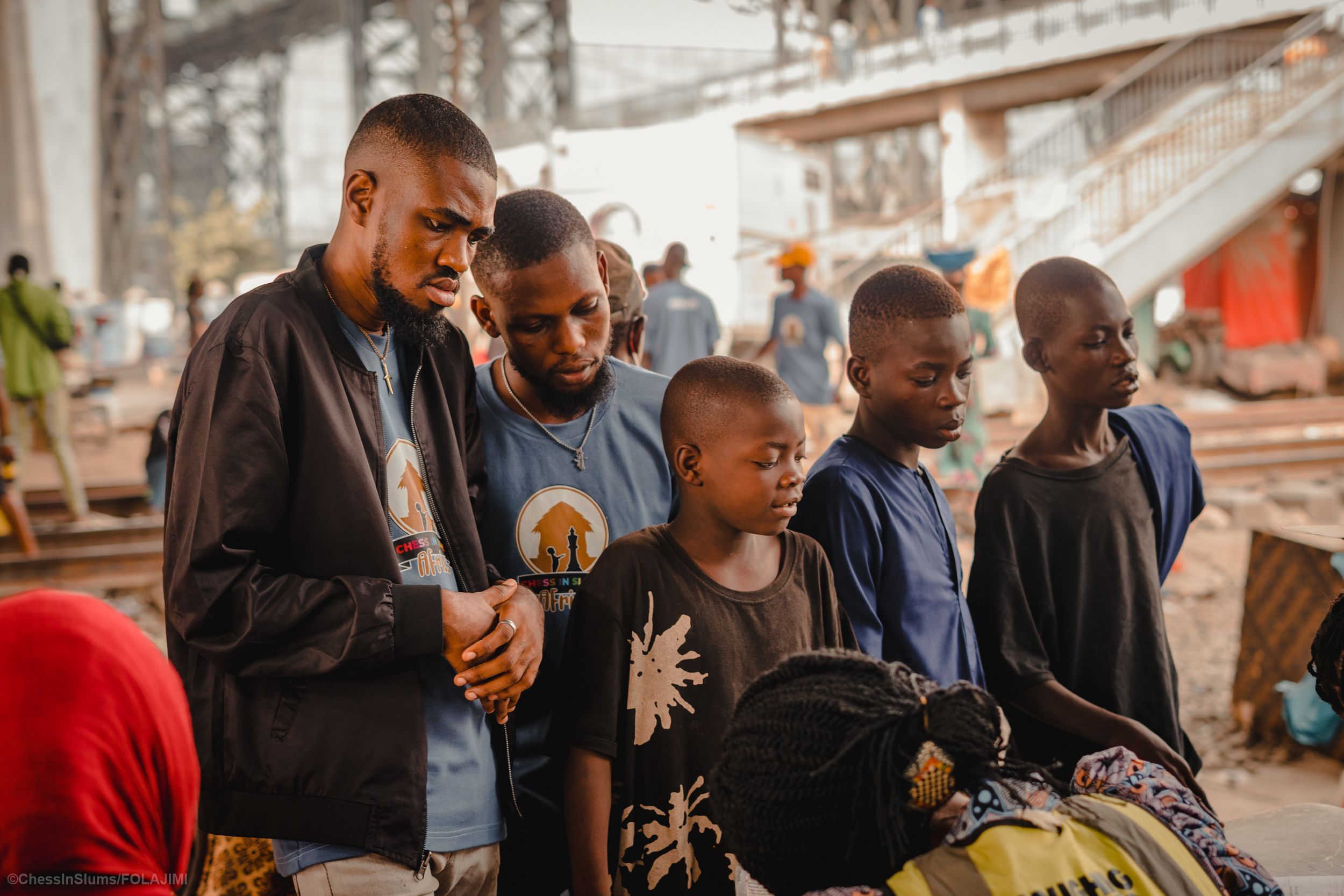
Babatunde was scared as the underbridge is associated with crime, and is home to street kids, petty traders, thugs and other people struggling to survive.
However, to his surprise, the street kids who slept under the bridge approached his car and offered to help. He became committed to them ever since.
However, taking chess to the street kids of Oshodi presented unprecedented challenges for the organization.
“These kids don’t have a home. The only place they call home is right there under the bridge. And that changes the entire dynamics of our interventions.”
“It was hard because there was already dysfunction: homelessness, and that is not something we deal with as an organization, it’s not what we were prepared for, but then everything turned out beautiful.”
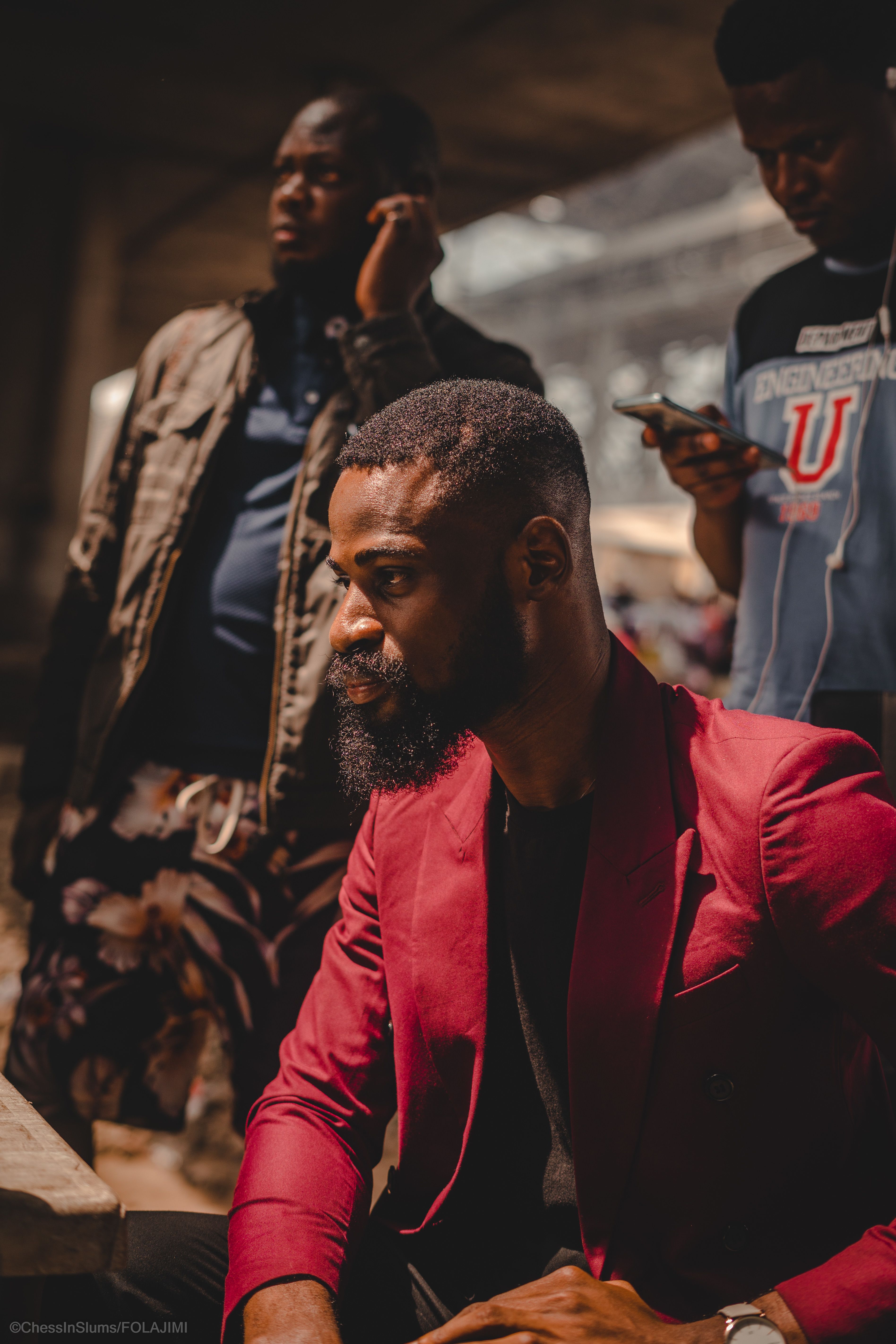
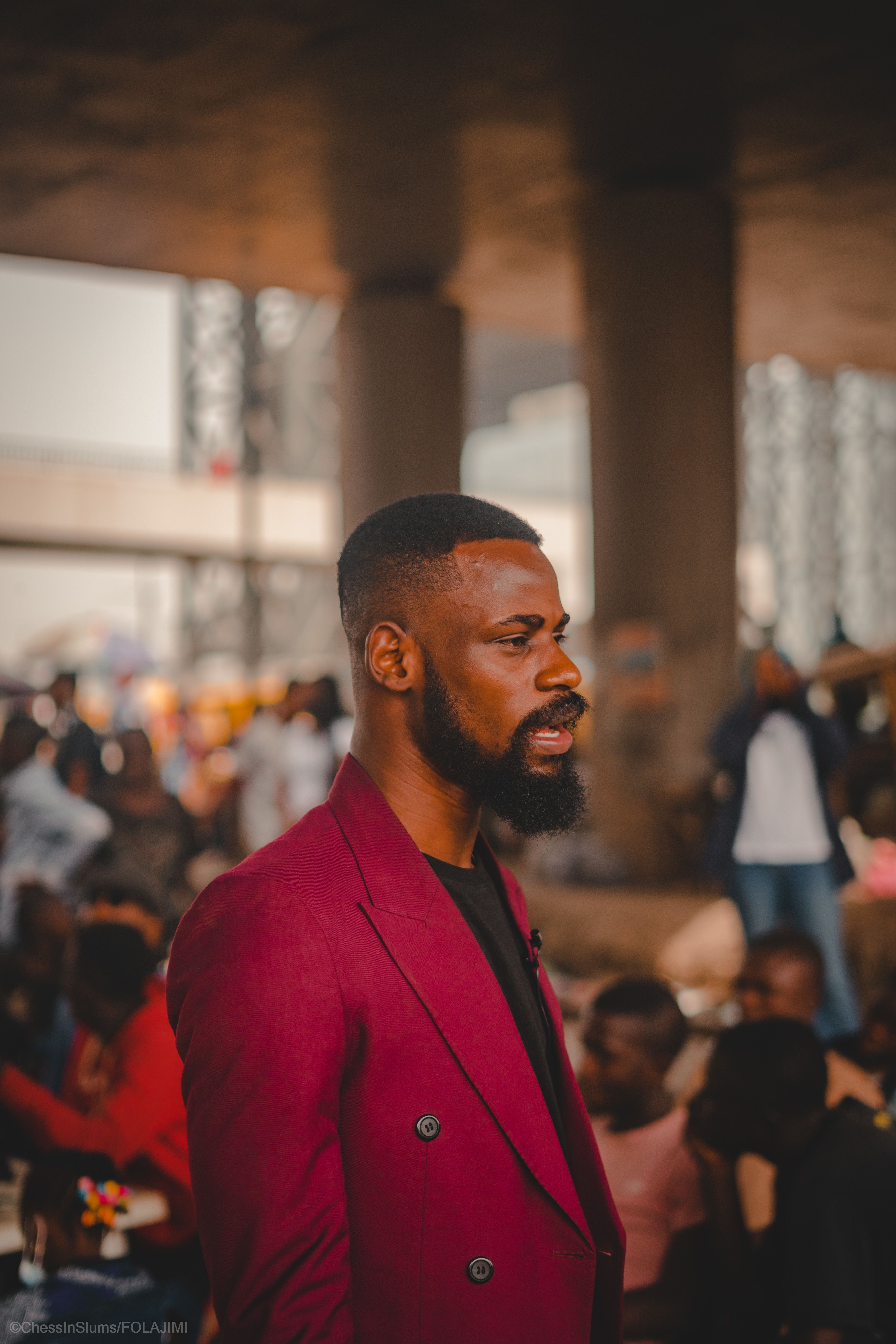
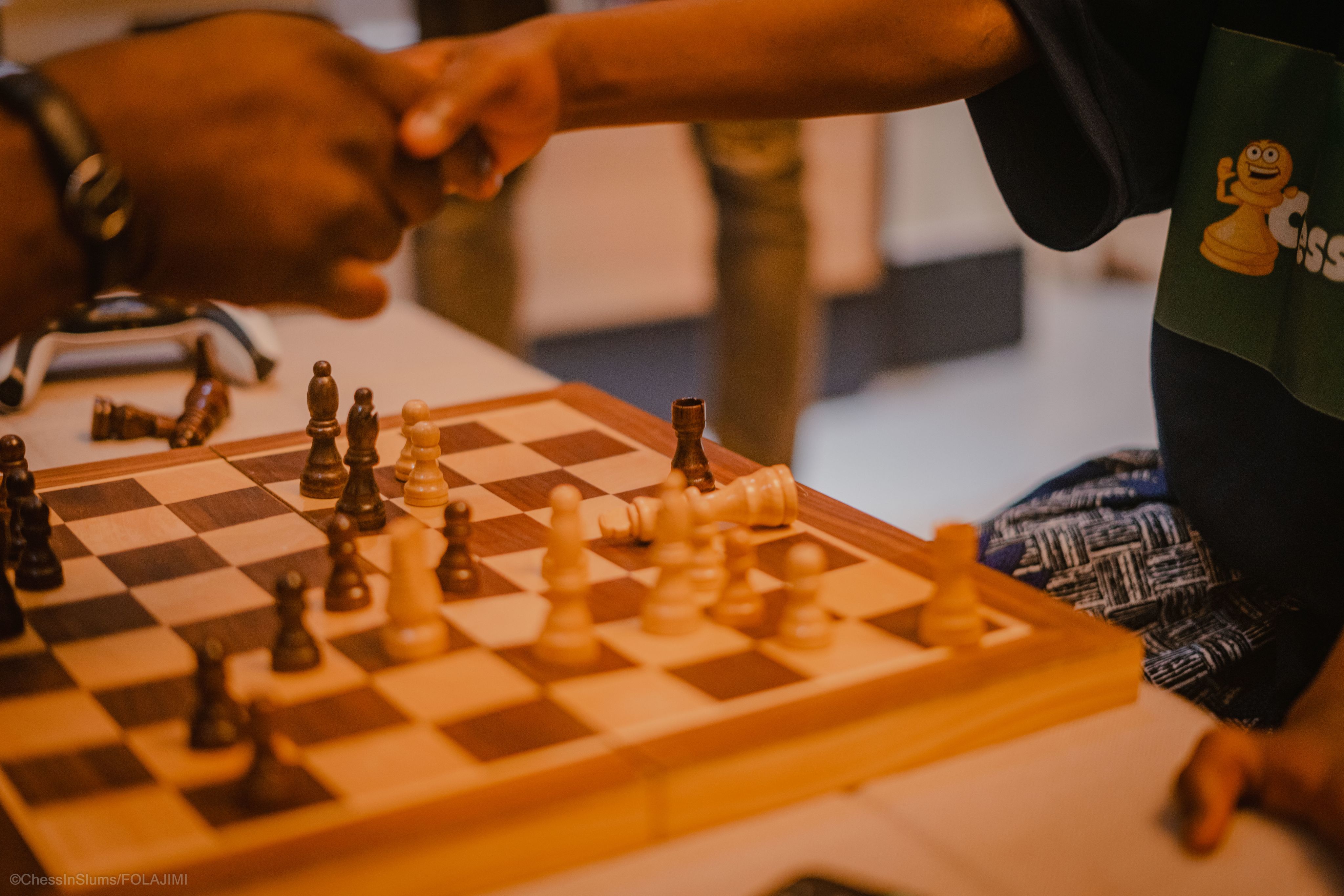

Babatunde grew up in Isale Odo, a community in the city of Ikorodu, which is northeast of Lagos along the Lagos lagoon. His father owned and operated a danfo, Lagos’ iconic yellow minibus taxi, and his mother earned money by hawking water, fruits, clothes and other items.
Babatunde's parents worked very hard but struggled to provide for him and his brother. “We had to share a toilet and a kitchen with 20 other people. I always thought that was normal. We didn’t have a borehole so we fetched water from the well. So, this was our reality growing up.” Although poor and uneducated, Babatunde’s parents prioritized quality education for their children.
Babatunde's parents refused to send their children to public schools, which are notorious for poor standards, and worked really hard to send them to private school. But this meant that they could not always afford school fees for both of their children.
As a result, Babatunde could not start secondary school because his younger brother was still in primary school. “I had to drop out of school for two years because my parents couldn’t afford to pay my tuition.” It was at this time that he discovered chess.
Babatunde learned about chess as a teenager at his local barber's shop. Whenever he went there to play PS1, he noticed his barber usually brought out a chess board and played with his friends. “I learned by observing the barber play with his friends.”
He saw the way the chess pieces were carved and he instantly loved it.
“Chess just looks like a game of royalty, the king, the queen, that is the way I saw it and it was love at first sight.”
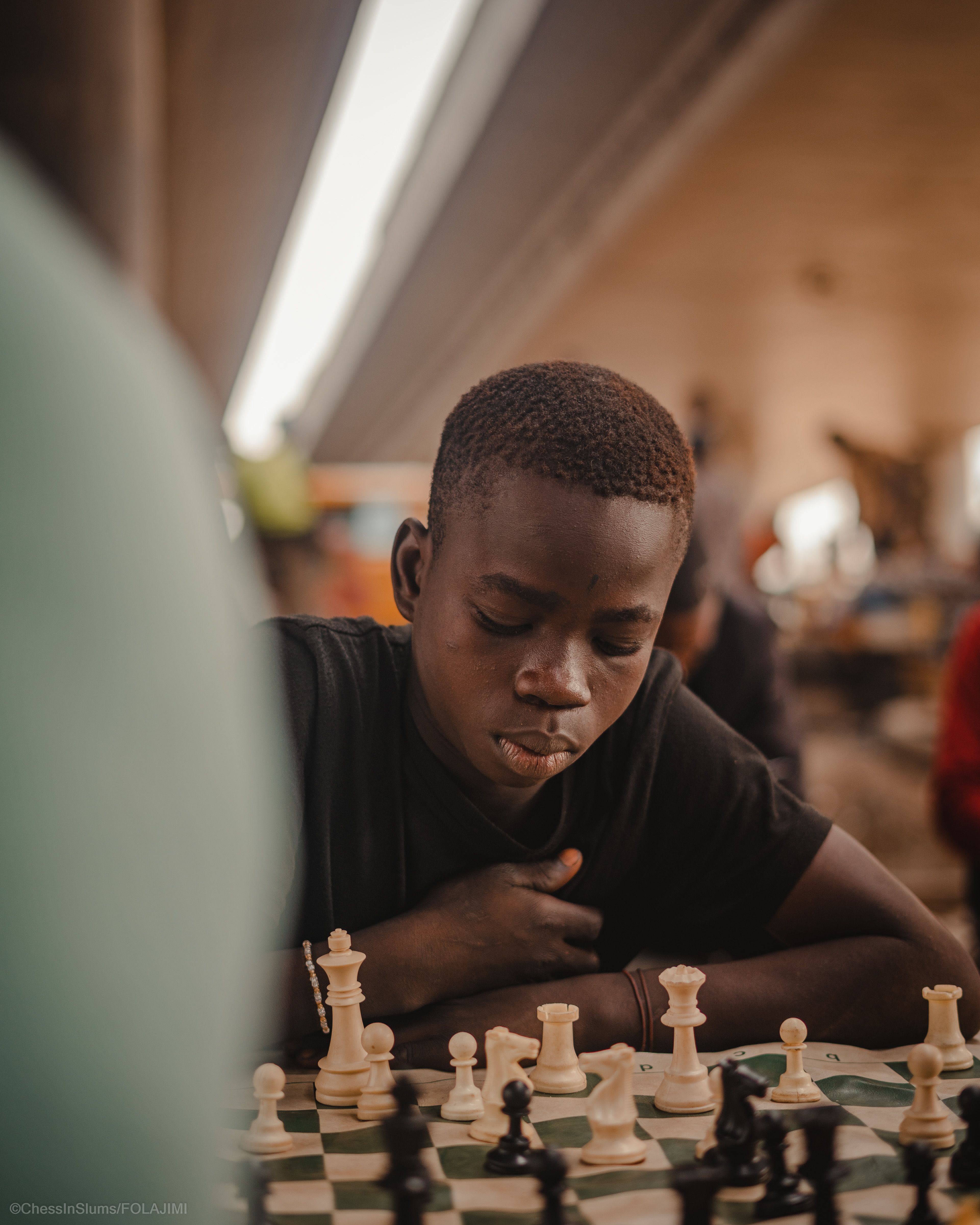
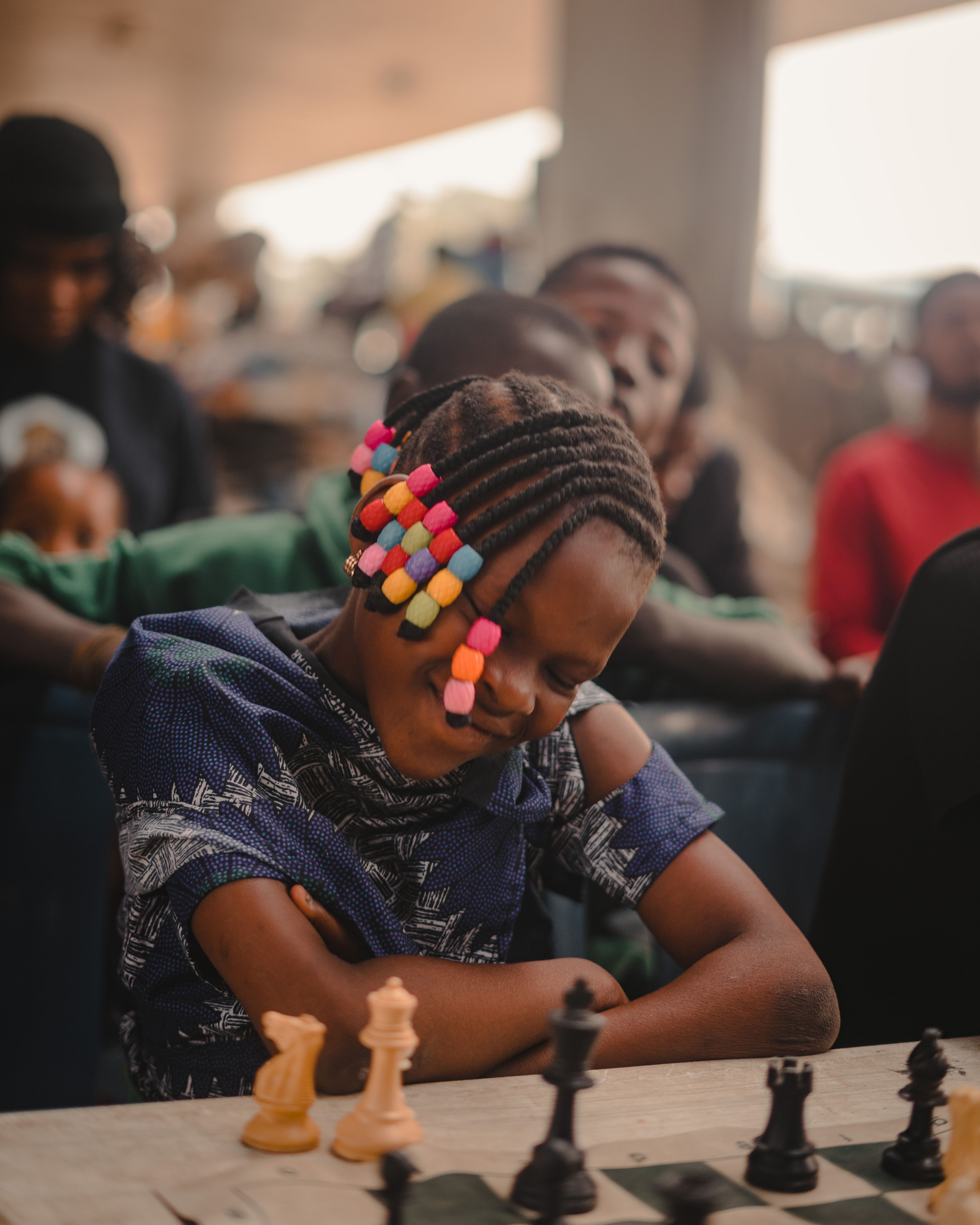
Impact ♟️
In three years, Chess in Slums has impacted the lives of 300 children in three of Lagos’ slums: Majidun, Oshodi and Makoko.
The organization has secured scholarships for 30 children to go back to secondary school or learn technical skills such as coding.
The Patrice Evra visit came as a surprise but was a massive boost. “They heard about our project, they were coming to Nigeria and asked if they could come to see our kids,” said Babatunde.
Chess In Slums is looking at the future with very ambitious dreams. “We want to give the gift of chess to a million children across Africa,” said Babatunde.
“If you give a child the gift of chess, you are not just giving them a board game, you are giving them a lifelong gift of critical thinking, a life long gift of problem solving, and these are skills that are relevant to the future of work and this is what I want for every child in Africa.”
Babatunde believes that such skills are critical for future generations to challenge the status quo and lead Africa into prosperity.
FAWAZ ♛
Adeoye Fawaz was 18 years old at the time Chess In Slums came to Oshodi. One of five children, his dream was to become a musician and a comedian.
However, his parents separated when he was a child. He stayed with his mother, who remarried and moved from Ibadan to Lagos.
When she died when he was 16, he became estranged with his family and ran away from his aunt’s house.
He also stopped going to school. He survived by working as a danfo (public bus) driver and slept under the Oshodi bridge.
Fawaz emerged as the overall winner in both chess and mental mathematics competition.
It’s painful to imagine how his life would have been if he had had proper guidance, if he had gone to school.
Notwithstanding, in the absence of his biological family, he has been adopted by Babatunde.
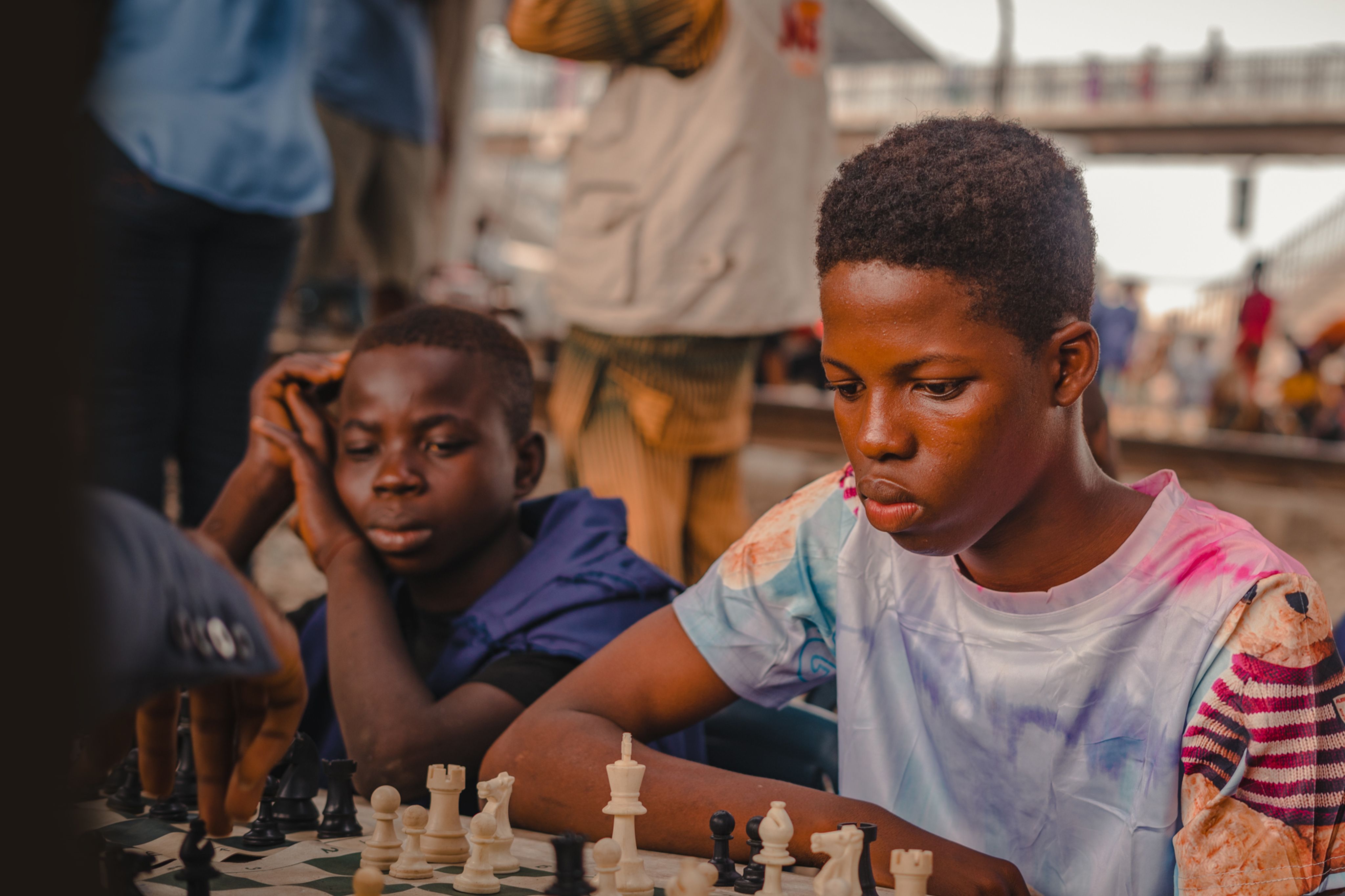
DAYO ♜
When Chess in Slums began working in Oshodi, Dayo, one of the local “area boys” volunteered to provide security. Dayo left his hustle as a danfo driver and diligently committed himself to the project. He was quick to pacify any violent outbursts and he made sure everyone felt safe the entire time.
In early 2022 however, Dayo lost his danfo job because he was volunteering with the Oshodi underbridge chess project.
When this happened, Chess in Slums bought Dayo his own danfo, allowing him to start his own business. He has been successful and is already saving up to buy another danfo.
After Dayo started his transport business, the other area boys who worked with the organization decided to part ways with their past lives and pursue their own businesses.
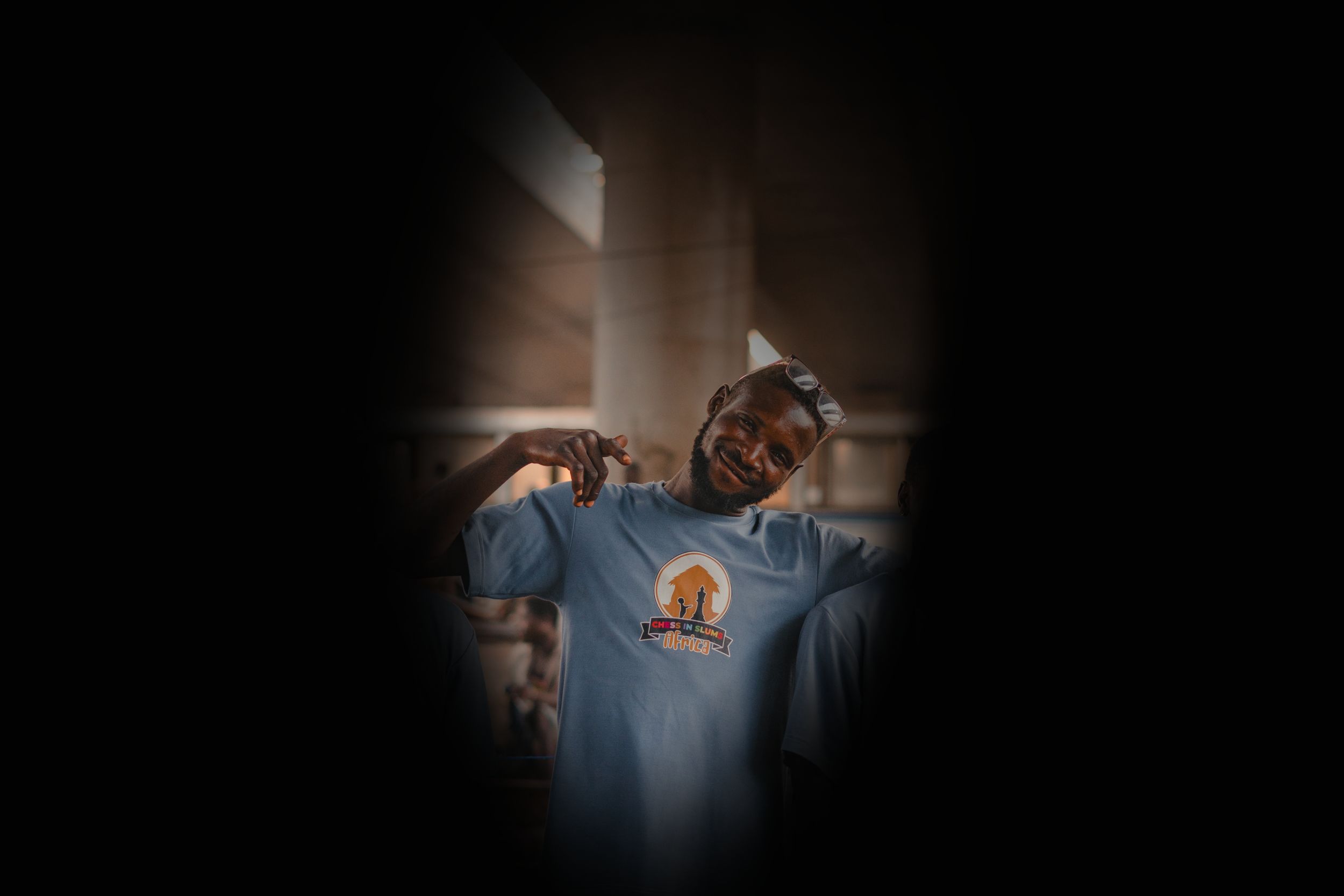
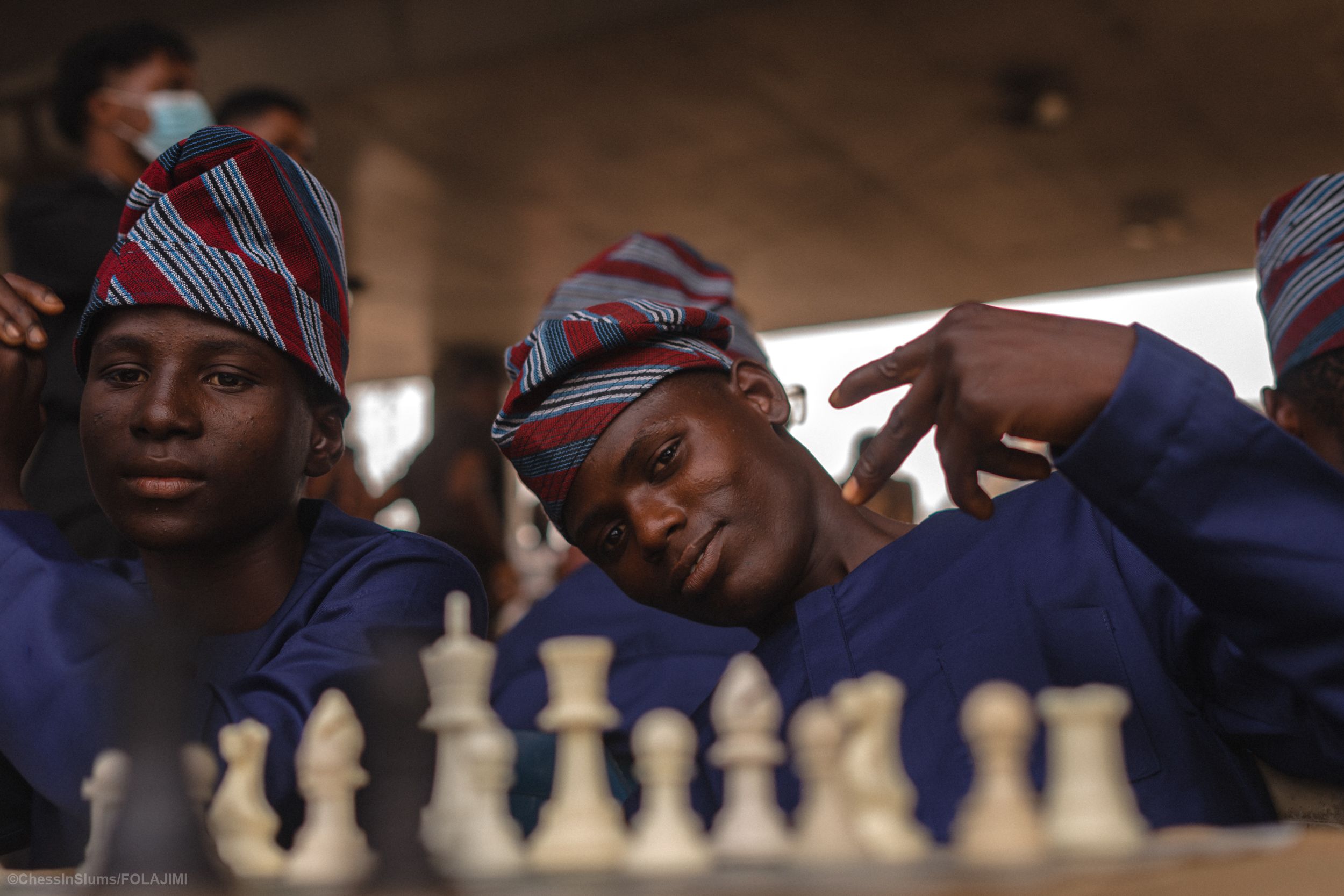

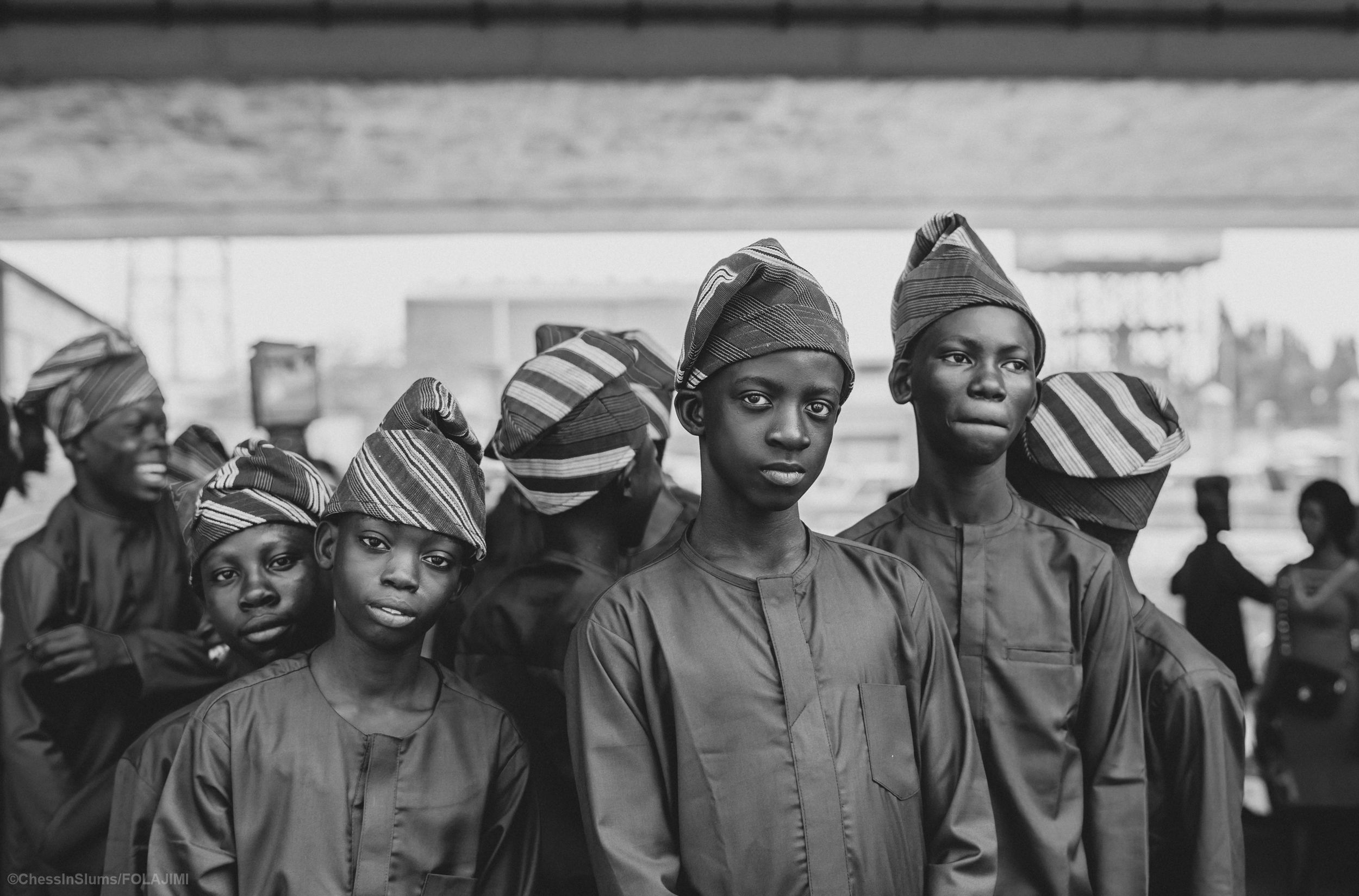
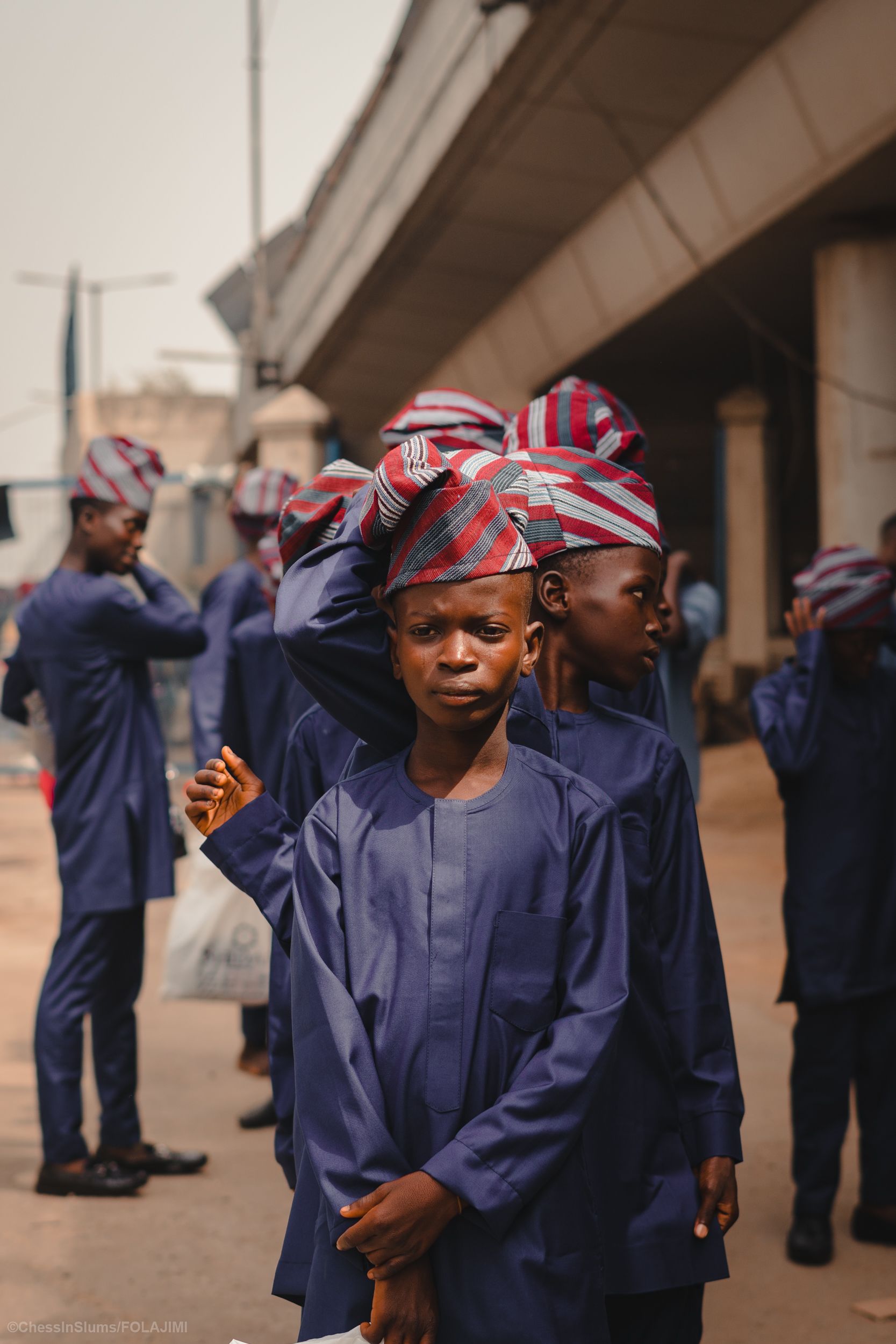
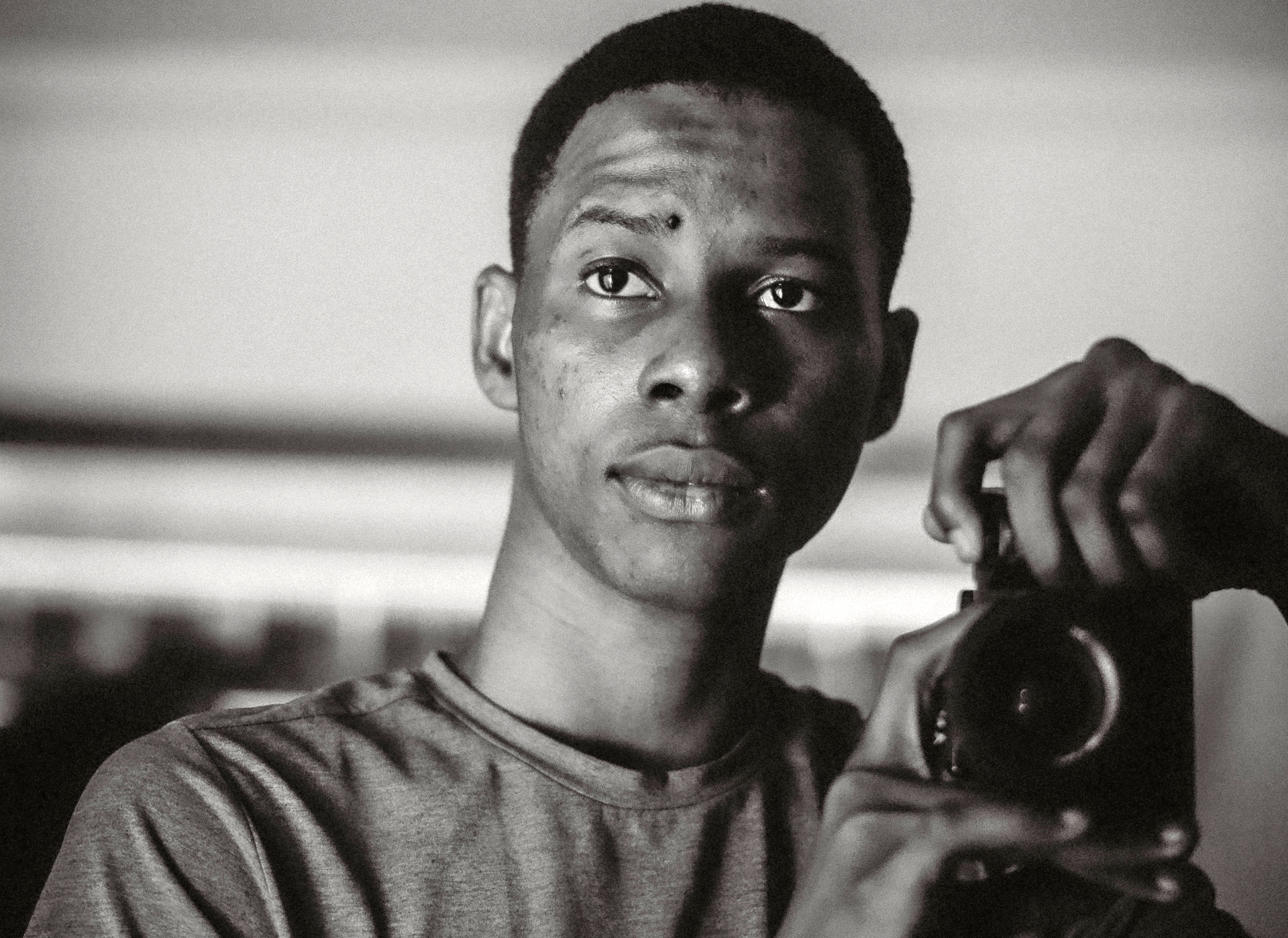
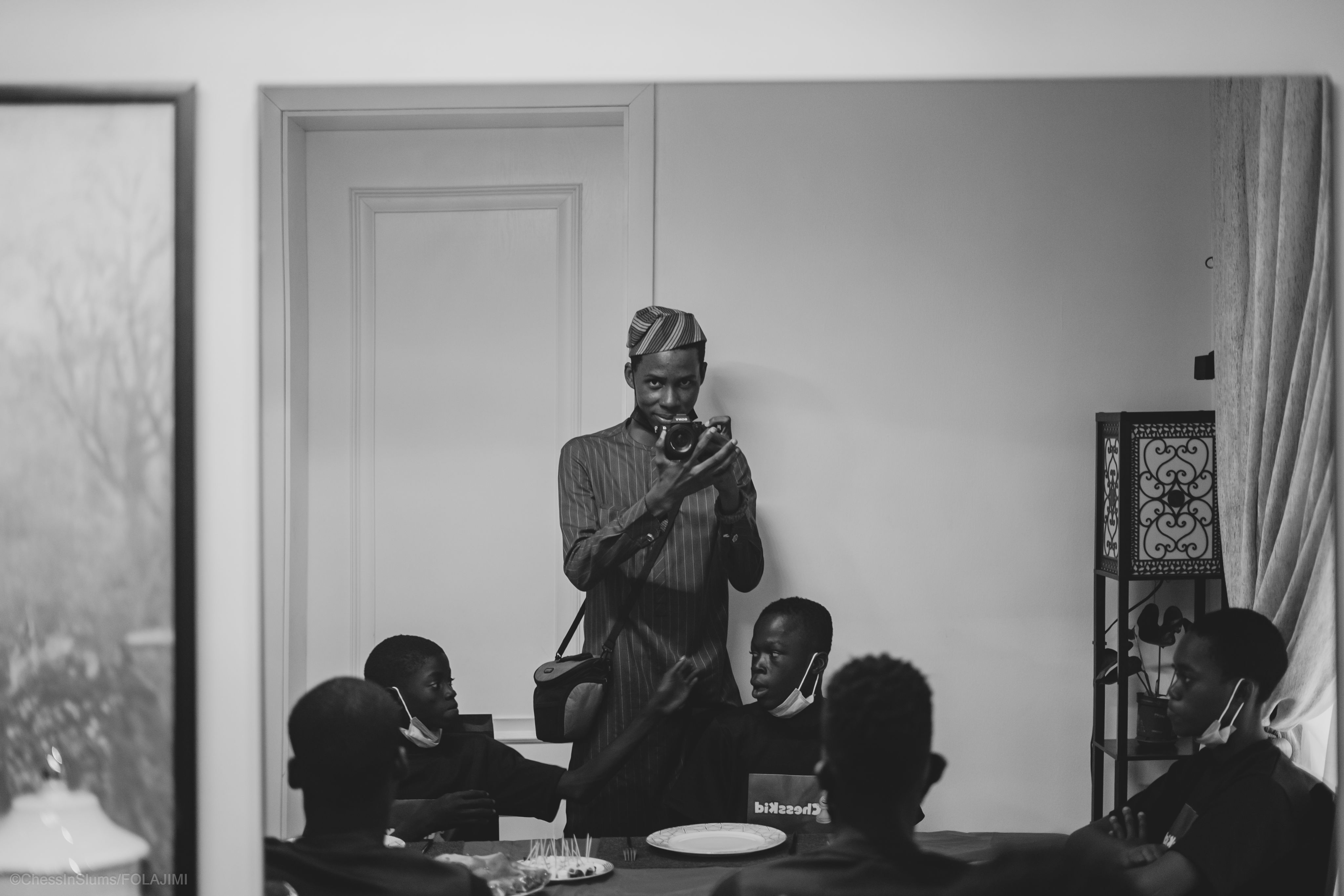
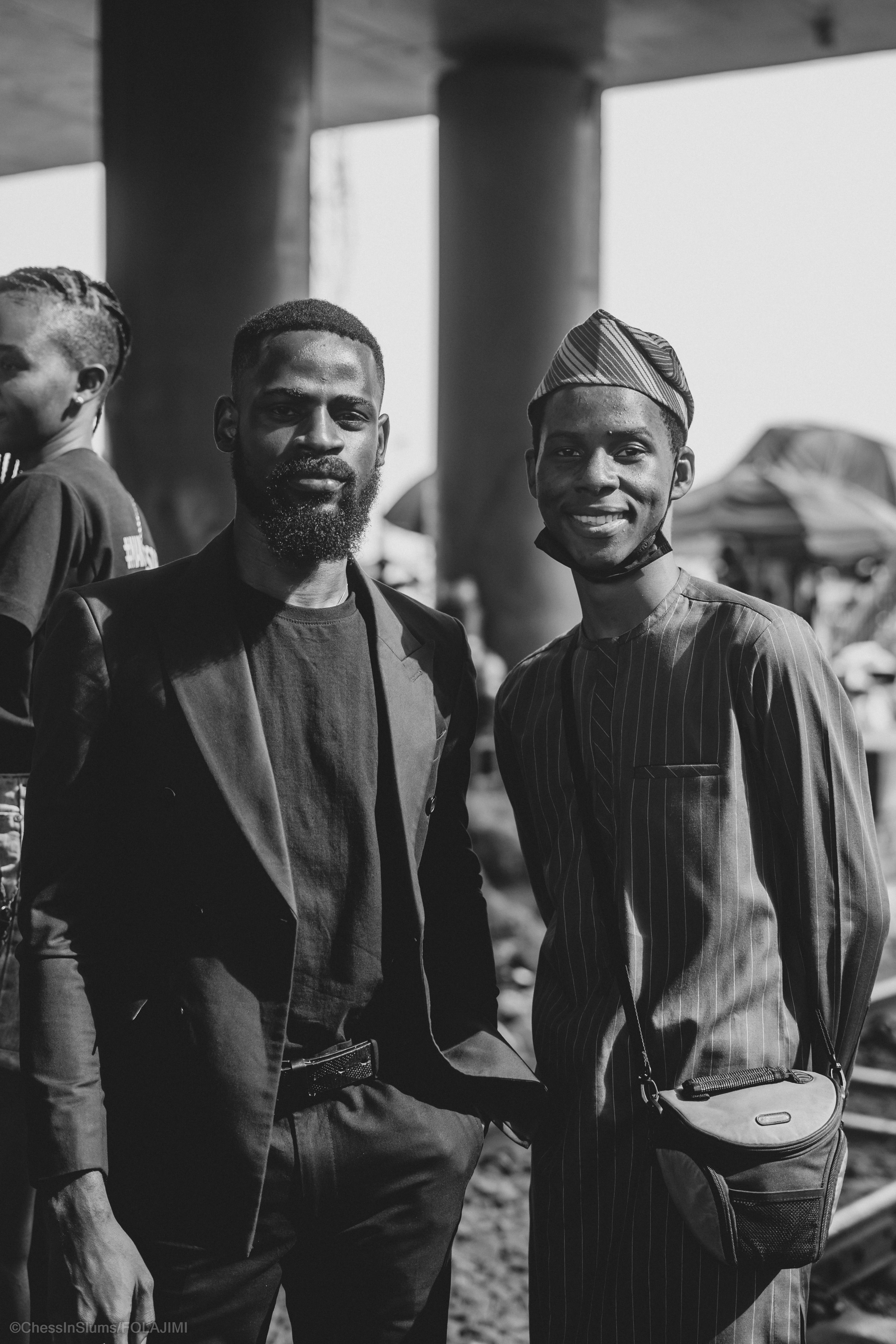
Freelance visual storyteller Emmanuel Folajimi is a self-taught photographer based in Lagos and specializing in portrait, editorial and documentary photography. You can see more of his work @thefolajimy.
"I believe strongly in the initiative and what it stands for, that was why I volunteered to document these kids, to help them document their story."
"I'm proud of the lives we've changed and how far we have come. These children that grew up in the slums need all the kindness, all the love and all the support they can get."
Photography: Emmanuel Folajimi
Drone videography: Ludovic Michaeli
Videography: Sol Philms
Text: Mohamed Keita with contributions from Emmanuel Folajimi
Design: Exaucé Yanga, Praise Lamina
Commissioned & Edited by Mohamed Keita
